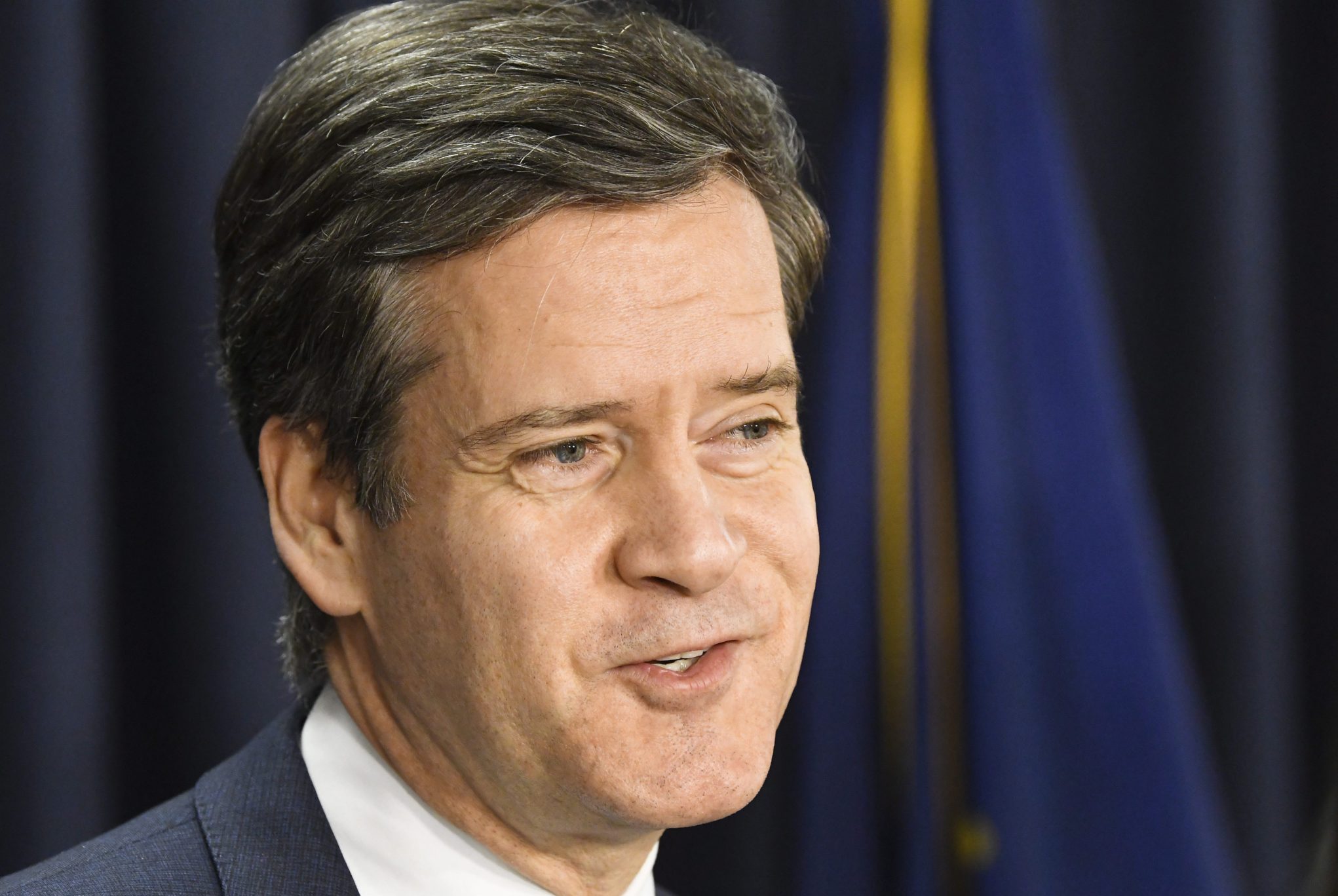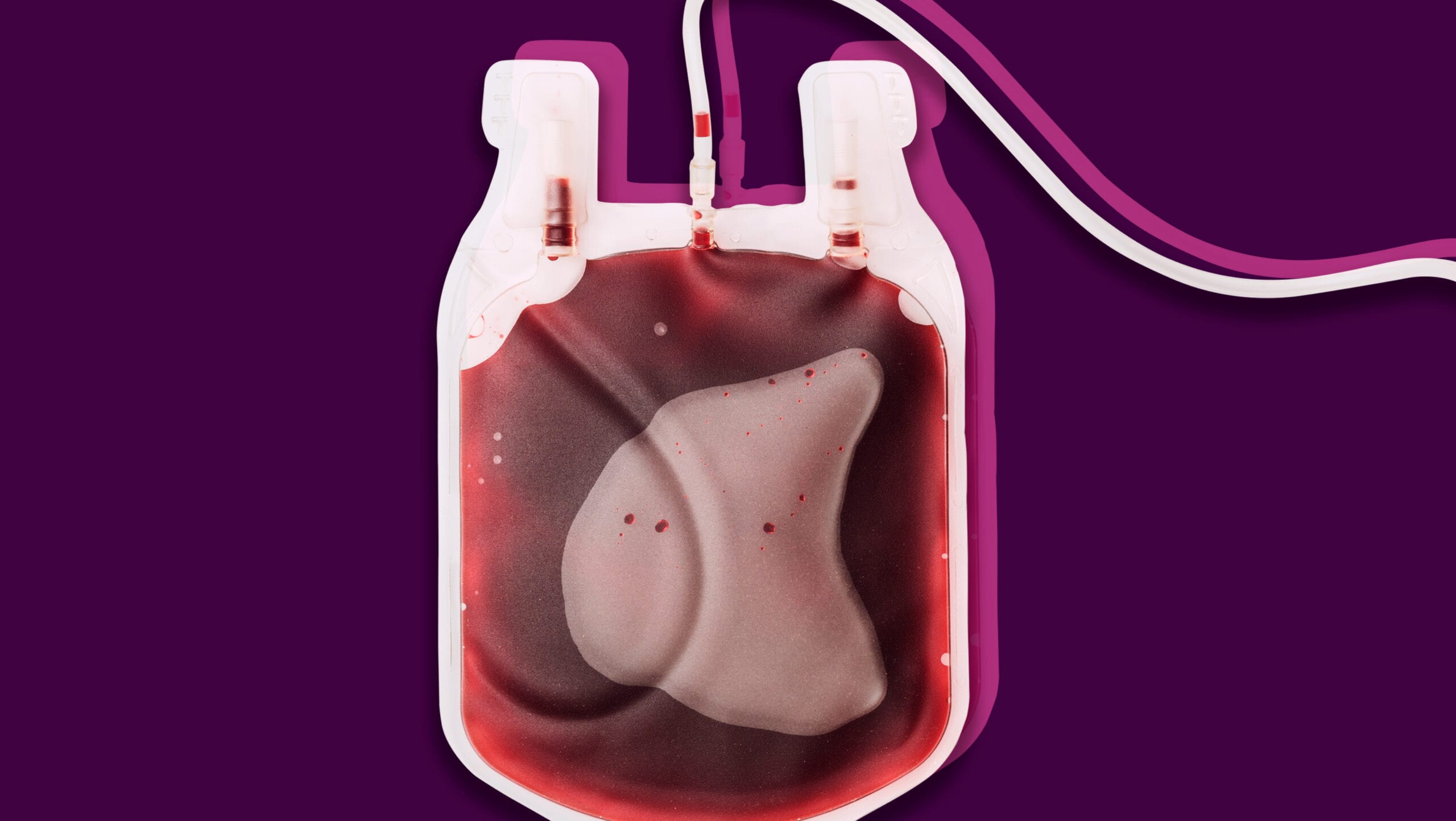When Kenyon Farrow’s father was diagnosed with leukemia in 1997, Farrow wasn’t able to donate blood to help keep him alive. Farrow was 22 and had just graduated from Ohio Wesleyan University. A few weeks after the diagnosis, his father needed a platelet transfusion, and Farrow went to the Cleveland hospital where his father was staying to help. A nurse handed him a form with a series of questions regarding blood bans—asking whether he had been to Africa since 1977 or had sex with another man during that time period. Farrow responded with his own question: He hadn’t yet engaged in anal intercourse with another man, just oral sex. Could he still donate?
The nurse said she would need to talk to her supervisor and disappeared. When she returned from behind the partition, she informed him that he would not be permitted to give blood “because you’re gay and the rules are against it.” At the time, men who have sex with men (MSMs) were banned from donating for life due to the fear that they would transmit HIV to patients through the blood supply.
The policy didn’t make sense to Farrow, who told her that he had just gone for his first HIV screening and tested negative. “If I had been straight and walked in here, I could have slept with half of Cuyahoga County and that would not have registered on these checklists at all,” he said at the time.
Farrow’s father passed away a month and a half later. “I don’t know that this would have saved him, but it’s absurd to think that these laws are still in place,” he says.
Twenty-three years later, many gay and bisexual men in both the U.S. and Canada remain prohibited from donating life-saving blood without restrictions. In 2015, the Food and Drug Administration (FDA) lifted the lifetime deferral for these populations in the U.S., which had been in place since 1983, and mandated that MSMs abstain from sexual contact with another man for 12 months before they are permitted to donate. Last week, that policy was updated once again: to three months, in line with Canada’s window for MSM donations.
Critics say that because the vast majority of gay and bisexual men remain sexually active throughout their lives, even shortened deferrals prevent many individuals from helping others in a time of need, such as the current COVID-19 pandemic. Canadian Blood Services told the CBC it has experienced a “spike in appointment cancellations” in the wake of the crisis, while the American Red Cross reported 86,000 fewer donations as of Mar. 17 following the cancellation of 2,700 blood drives across the U.S.
To help address those shortages in the blood supply, LGBTQ advocates and policymakers believe now is the time to finally allow MSMs to donate without discriminatory restrictions. On Mar. 24, New York State Senator Brad Hoylman wrote a letter to the FDA calling the 12-month deferral period “outdated” and “detrimental to public health.” When the FDA announced it would be shortening that window, Hoylman maintained the guidelines “will continue to reject blood donations from gay men who are married, partnered or otherwise non-celibate.”
“Being gay isn’t a pre-existing condition, a health risk, or a sin,” Hoylman said in a press release at the time. “There’s no scientific reason a gay man can’t donate blood.”

New York State Senator Brad Hoylman. Credit: AP Photo/Hans Pennink
The issue is personal for Hoylman. In addition to being a gay man in a same-sex marriage, the state he serves is at the epicenter of the coronavirus outbreak. The U.S. is the global leader in confirmed cases of COVID-19, with Johns Hopkins University reporting more than 200,000 at the time of publication. New York accounts for about 40 percent of known infections in the country.
Hoylman says the reality is that lives are at stake. “We need all hands on deck to defeat COVID-19,” he tells Xtra. “That includes every American citizen, gay men included.”
According to The Williams Institute, a pro-LGBTQ think tank housed at the University of California, Los Angeles, ending the deferral period for gay and bisexual men in the U.S. altogther could result in 615,300 new donations to the blood supply. That’s why leading LGBTQ non-profits applaud Hoylman for calling on the FDA to take additional steps to update its blood donation policies. Kelsey Louie, CEO of Gay Men’s Health Crisis, says in a statement that even three months is still a “de-facto ban,” and Lambda Legal HIV Project Director Scott Schoettes stresses the new policy is “still discriminatory.”
“While this change by the FDA is a step in the right direction, it still bases itself in bias rather than science,” adds Alphonso David, president of the Human Rights Campaign, in a statement. “This is progress from the FDA. But our work is not yet done.”
“Being gay isn’t a pre-existing condition, a health risk, or a sin. There’s no scientific reason a gay man can’t donate blood”
While Nathan Lachowsky, research director of the Vancouver-based Community-Based Research Centre, didn’t have specific figures regarding the potential impact of gay and bisexual donors on Canada’s blood supply, he says the organization’s surveys show that 90 percent of MSMs would be willing to give if they were eligible to do so without a deferral period in place. “The level of participation within our community is likely to be higher than the general population,” he says. “We already see greater civic engagement from our community.”
HIV advocates say that revisiting the rules on gay and bisexual blood donors—which were updated just last year in Canada—is critical not only in addressing the donation shortages but also helping to develop a vaccine or treatment for COVID-19. Currently, early clinical trials are underway to transfer plasma from survivors of coronavirus to individuals who are in the early days of a COVID-19 infection. The hope is that the transfusion could offer temporary immunity before individuals fall severely ill.
As those experimental treatments are underway at a hospital in Houston, GLAAD confirmed to Xtra that Lachowsky says that these barriers continue to make gay and bisexual men feel like second-class citizens. “They’re treated differently and the sex they’ve had is seen as dirty and dangerous,” he says. “For a lot of people, donating blood is a civic act. It’s a part of contributing to your community. The ability to be able to participate in this kind of selfless contribution to unknown others in our society means a lot to folks that have been discriminated against and marginalized in their communities.”
Although MSMs have been most singled out by these policies, they are not the only groups affected. Gary Lacasse, executive director of the Canadian AIDS Society, says there have been recent reports of trans and non-binary people being turned away from blood donation centres in Canada. The 2019 policy instituted by Canadian Blood Services and Héma-Québec, which oversee Canadian blood regulations, mandates that trans people are permitted to donate in alignment with their gender one year after undergoing confirmation surgery.
Those guidelines were hailed as a “major step” forward at the time, but advocates say they have created more barriers and confusion. A trans man who has sex with men, for instance, would be subject to the deferral policy after the one-year cutoff, but before then he would be permitted to give blood.
“What we’ve been promoting is a behavioural screening process, not based on sexual or gender identity,” Lacasse tells Xtra. “Other countries have brought their deferral period down to zero, and it has not affected their blood supply.”
With current technologies able to detect the presence of HIV in the bloodstream within a week of transmission, more than a dozen nations, including Spain and Chile, have begun asking potential donors questions designed to assess their overall risk. A questionnaire might, for example, inquire as to how many sexual partners an individual has had over a given period of time or whether those encounters involved unprotected sex. Meanwhile, France bans any donor who has had multiple sexual partners in the past four months, regardless of whether they are LGBTQ or not.
“It’s not about your gender and the gender of your partners,” Lachowsky says of France’s policy. “It’s about whether you’ve had sex with more than one person.”
Despite these case studies, it’s unclear whether the U.S. nor the Canadian governments are prepared to move to a screening process that does not single out gay and bisexual donors. In a call with reporters on Apr. 2, Peter Marks, director of the Center for Biologics Evaluation and Research, said the three-month deferral period “is not the final resting place of where this policy will be” but did not discuss a timeline for further progress. Additionally, the new regulations from the FDA are non-binding, meaning individual centers have the ability to not follow the recommendations.
“The level of participation in blood donation within our community is likely to be higher than the general population. We already see greater civic engagement from our community”
Canadian Minister of Health Patty Hajdu, meanwhile, suggested the country’s own three-month deferral could soon be revised, while adding that the “health and safety of Canadians” remains the government’s “top priority.” “Canada has one of the safest blood systems in the world, supported by evidence-based policy,” Minister Hajdu’s office tells Xtra in an email statement. “The finish line is within sight, and we’ll keep working with Canadian Blood Services and Héma Quebec until we cross it.”
Farrow believes policymakers have no choice but to push over that line, especially given the stakes. Since his father passed away two decades ago, he has become a leading HIV activist and now works as a senior editor for The Body, a website focusing on news and information regarding HIV/AIDS. As the U.S. tops over 5,300 deaths from the novel coronavirus at the time of this writing, Farrow points out that the crisis has “already surpassed the two most fatal events” from the last two decades of American life—Hurricane Katrina and 9/11—and describes New York in similar terms as those who lived there after the Twin Towers fell.
“It’s disturbingly quiet,” he says. “It can feel like a ghost town, which is a bizarre feeling in a city where you generally are bumping up against people all the time.”
According to Farrow, what will unify New Yorkers—and people from countries across the world—at a time when the very fabric of their lives has been torn apart is helping out those with the greatest need.
“There can be a real opportunity for us as a country to rethink the BS, rugged individualism that is often celebrated in America but doesn’t actually doesn’t serve us,” Farrow says. “It’s just horrible to know that 23 years later people are still put in this position where they could donate blood and hopefully save someone’s life, but they are prevented from doing so.”
With files from Erica Lenti


 Why you can trust Xtra
Why you can trust Xtra


